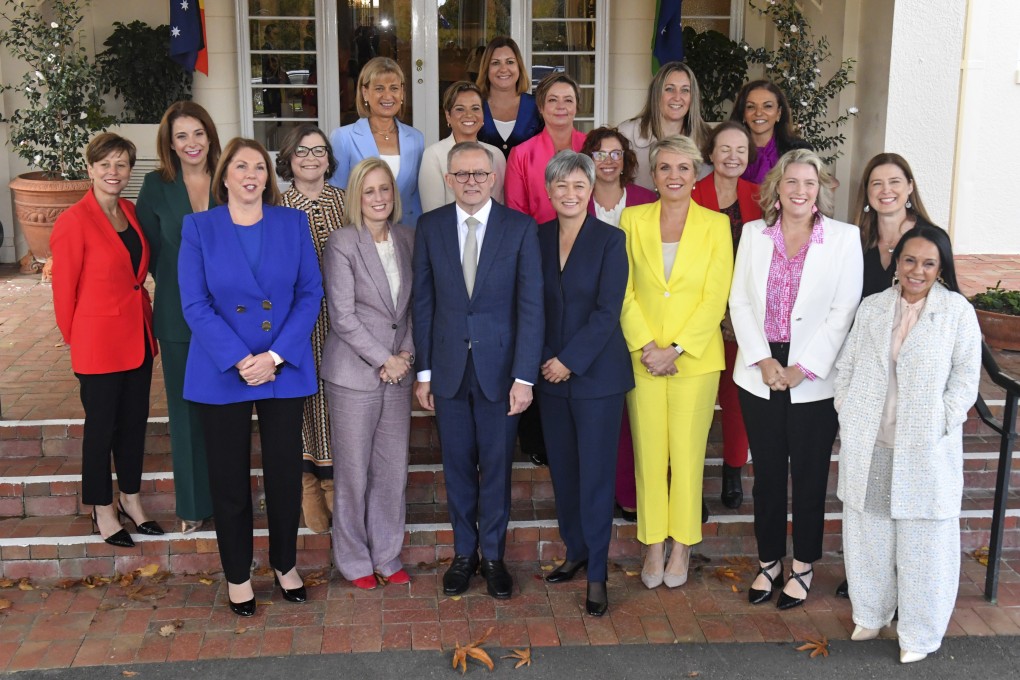Opinion | How might Australia’s diverse new cabinet make a difference to politics?
- Anthony Albanese’s cabinet, with the most number of women, shows a shift away from the country’s rhetoric of ‘merit’, but the test is to see what difference diversity makes
- Areas that hold promise include a renewed whole-of-government women’s budget statement and reforms to bring about a constitutionally enshrined First Nation’s Voice to parliament

The broader ministry boasts many firsts, including Penny Wong as Australia’s first foreign minister with an Asian background, Linda Burney, the first female Indigenous cabinet minister, and Anne Aly, the first female minister with a Muslim background.
A photo of the incoming Minister for Aged Care and for Sport Anika Wells walking through Parliament House with her three young children seems emblematic of the changes brought by the election.
While falling short of 50/50 representations, this is a cabinet that better represents the country it serves. It is widely welcomed and long overdue.
For many years, Australia has lagged behind the rest of the world in gender equality in both parliament and cabinet.
In January 2022, 33 per cent of Scott Morrison’s cabinet were female. In 2021, the Inter-Parliamentary Union ranked Australia 73rd of 193 countries for women in ministerial positions in national parliaments. This was up from 90th in 2019 but significantly down from 29th under Kevin Rudd in 2008.
With the incoming Albanese government, Australia has almost caught up to those countries it likes to compare itself with. In 2021, women held 50 per cent or more of ministerial positions in seven OECD countries: Austria, Belgium, Canada, Finland, France, Spain and Sweden, while New Zealand’s cabinet had 40 per cent.

